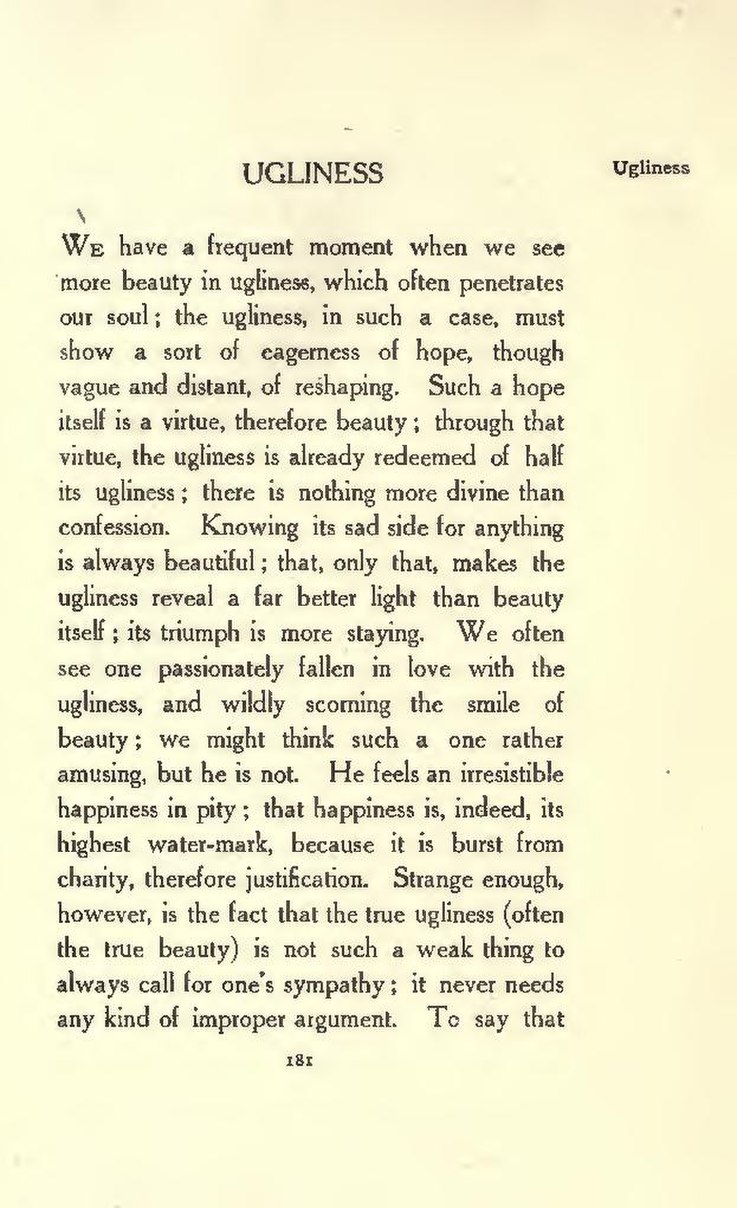We have a frequent moment when we see “more beauty in ugliness, which often penetrates our soul; the ugliness, in such a case, must show a sort of eagerness of hope, though vague and distant, of reshaping. Such a hope itself is a virtue, therefore beauty; through that virtue, the ugliness is already redeemed of half its ugliness; there is nothing more divine than confession. Knowing its sad side for anything is always beautiful; that, only that, makes the ugliness reveal a far better light than beauty itself; its triumph is more staying. We often see one passionately fallen in love with the ugliness, and wildly scorning the smile of beauty; we might think such a one rather amusing, but he is not. He feels an irresistible happiness in pity; that happiness is, indeed, its highest water-mark, because it is burst from chanty, therefore justification. Strange enough, however, is the fact that the true ugliness (often the true beauty) is not such a weak thing to always call for one’s sympathy; it never needs any kind of improper argument. To say that
